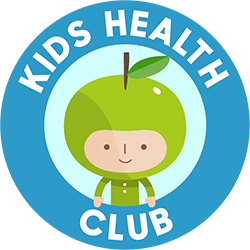Encouraging Healthy Sleep Habits in Children

Children's Healthy Sleep
Sleeping problems in children are all too common. Sleep deprivation can negatively impact everyone in the family, as a child's sleeplessness often means the parents don't sleep either.
Even children without sleep disorders or conditions like autism or ADHD, which are often associated with bedtime issues, can experience sleep disturbances. Around 40% of children and young adults face sleeping problems at some point in their lives.
Effects of Sleeping Problems in Children
Lack of sleep can harm a child’s mental and physical health. Research links sleep deprivation to poor memory and attention, increased anxiety risk, poor food choices, and weight gain. While this is concerning, parents can employ various strategies to improve their children’s sleep habits, which are crucial for their health and the family’s well-being.
How Much Sleep Do Kids Need?
Sleep requirements vary for each child, and there is debate about the ideal amount of sleep needed, even for adults. The Sleep Health Foundation provides a chart of recommended sleep times for all age groups, offering a useful guide for parents.
Strategies for Overcoming Sleeping Problems and Encouraging Healthy Sleep Habits
Establish a Bedtime Routine A consistent bedtime routine promotes better sleep. Studies show that earlier bedtimes and consistent pre-bedtime activities lead to quicker sleep onset, less night waking, and longer sleep duration. Routines reduce stress for both children and parents, and a disorganized family environment can increase sleep disturbances and anxiety in children.
Create a schedule for pre-bed activities (e.g., 7 pm bath, 7:30 pm quiet play or reading, 8 pm lights out) and give your child a visual timetable with pictures of each activity in order. Involve your child in creating the routine for better compliance.
Dim the Lights Melatonin, a hormone produced in response to darkness, helps regulate sleep. Exposure to bright lights in the evening can suppress melatonin production and disrupt sleep. Maximize natural daylight exposure and minimize bright artificial lighting in the evening.
Limit Screentime Blue light from electronic devices and certain light bulbs can suppress melatonin production. Avoid using electronic devices and bright lights at least an hour before bedtime. Consider using light sources with orange or red wavelengths, like candles, and wean your child off night-lights that emit blue light.
Maintain a Cool Room Temperature The National Sleep Foundation recommends a bedroom temperature of 18.3°C (65°F) for optimal sleep. Avoid physical excitement, vigorous exercise, hot rooms, and hot baths or showers an hour before bed, as they can raise body temperature and disrupt sleep.
Practice Relaxation Techniques Activate the parasympathetic nervous system for a calm and relaxed mood through diaphragmatic breathing and progressive muscle relaxation. Have your child close their eyes, breathe slowly through their nose, and gently exhale through pursed lips. Alternatively, guide them through a relaxation body scan, tensing and then relaxing each body part.
Limit Eating and Caffeine Before Bed Avoid food 2-3 hours before bed. Ensure dinner contains a balance of protein, carbohydrates, and healthy fats to keep your child satisfied. Avoid sugary and caffeinated foods from 3 pm onwards.
Support Gut Health The health of the intestinal bacteria (microbiota) is linked to sleep and behavior. If your child has digestive complaints or behavioral issues, a functional stool test and a probiotic supplement might be beneficial.
Additional Strategies for Better Sleep
- Sing lullabies or play relaxing music.
- Give a pressure massage, especially for children with sensory processing issues.
- Add 2-3 cups of Epsom salts to a warm bath for calming magnesium.
- Offer chamomile tea during the pre-bed routine.
- Address worries early in the day to alleviate nighttime anxiety.
- Educate your child about sleep with books and apps.
- Consult healthcare professionals for recommendations on magnesium, GABA, or homeopathic remedies.
- Consider a sleep study for persistent insomnia or specific neurological or developmental conditions.
By implementing these strategies, parents can help their children develop healthy sleep habits, improving overall well-being for the entire family.


